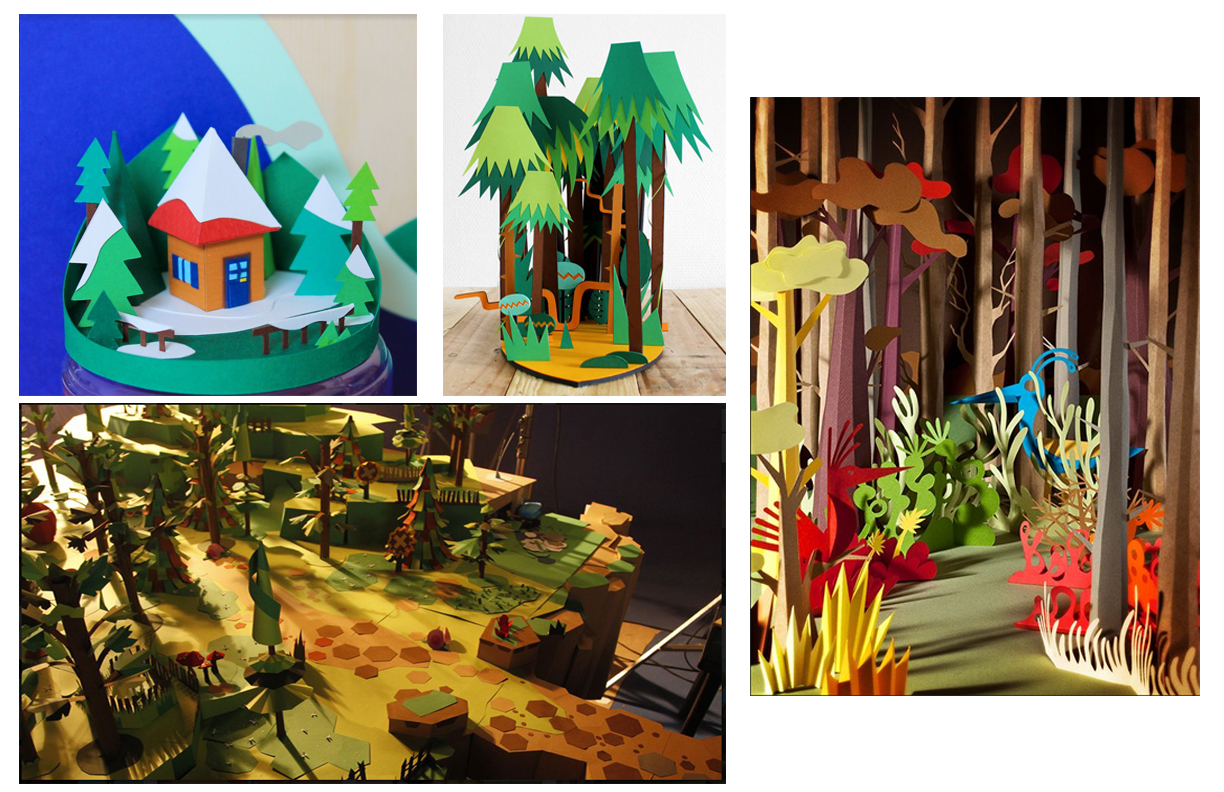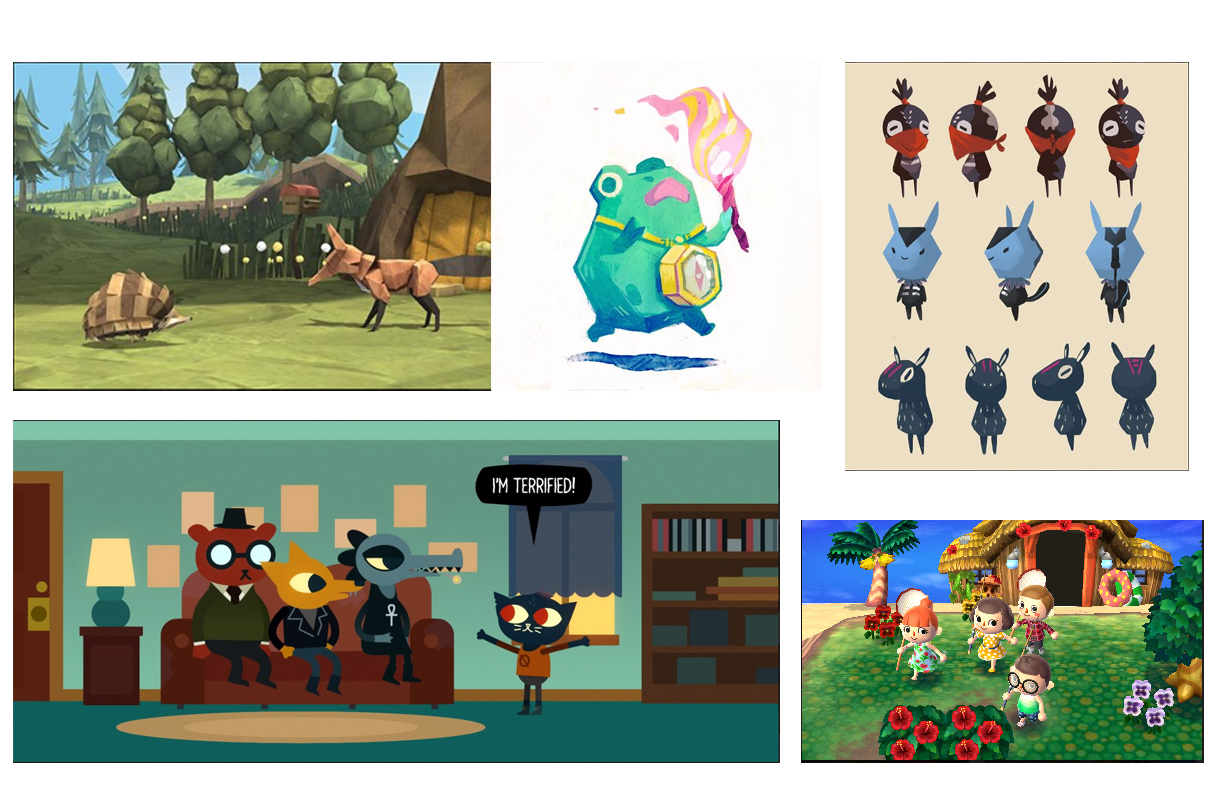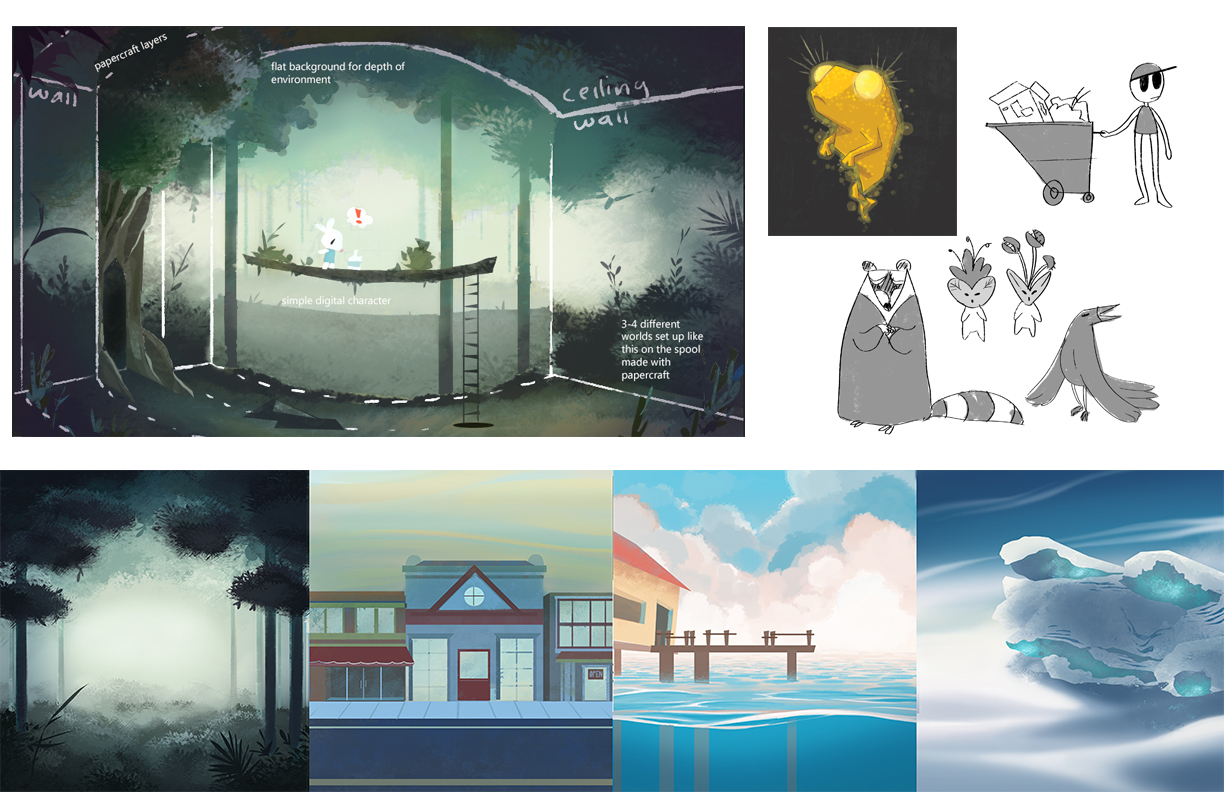Our project plans on being an interactive narrative about the effect that waste, trash, and littering has on the environment.
Below includes some precedent research and moodboards.
Physical technique ideation:
The physical elements of the environment will combine flat and 3D papercraft as well as real-life nature elements.
The spool will be divided into 4 sections, and each section will have a “wall” between them in order to create an illusion of depth in the environment.

Character design:
Characters take inspiration from video games that feature animals with human-like qualities.

Narrative ideation:
Our story begins with a human living in a city. He becomes disgusted with the trash-filled environment and journey into a nearby forest for a breath of fresh air. But after arriving in the forest, he finds the leftovers of a hunting camp-site, and realizes that even nature can’t escape the trash that humans leave behind. Then, he encounters the ghost of an extinct species–a golden toad. The toad explains that the leftover trash is just the beginning of the forest’s problem, and reveals the effects that deforestation has on the rest of the forest animals.
The human, still naive and underestimating of the problem, decides that if he cleans up the trash throughout the world by himself, then everyone else will realize how nice a clean environment is and would stop generating harmful waste. He sets out on a journey with a cart to collect trash in.
His journey consists of 4 levels or “worlds”. After his encounter in the forest, he begins cleaning in the city, then from the city’s dock explores the ocean, and finally comes to the arctic glaciers. Throughout each world, he must overcome obstacles and decide how to navigate the world with a limited inventory space. The limited inventory space serves to bring attention to the usage of objects and the resulting trash. The obstacles are designed to have a difficult point in which the player can summon the ghost frog as a guide to provide hints or help in overcoming it.
The journey cycles 3 times: the first cycle, he naively believes the problem is small enough for him to solve by himself. After his first arrival at the glaciers, he sees his reflection–exaggerated and large–and returns home to the city.
The 2nd cycle begins when he returns home and realizes that his efforts made little difference, and in some cases, the environment was negatively impacted by the decisions he made on his journey. Frustrated, he decides to clean the environment again. This time, each world reveals the negative effects that human waste has had on it– the inhabitants of the city feel ill from the air pollution; the forest has been thinned out, leaving animals stranded without a home; the ocean water’s quality suffers from runoff and waste dumping; the glaciers begin to melt. Animal NPCs explain the situation in each world, providing the player with objectives in order to proceed. In return, the player shares information about their experience and suggestions on how to help the environment. However, the arctic level has no NPCs, and the golden frog guide does not appear at the most challenging part of the narrative. The human appears small in proportion to the glacier, and returns home devastated at how they couldn’t change anything.
The 3rd cycle involves the player returning to each world. Strangely enough, each world has begun to heal–a little at a time. As he explores, he discovers that the NPCs want to help improve the state of the environment. The obstacles in this cycle are solved by working together with NPCs. Upon arrival at the arctic, the angles in the glacier’s ice show multiple reflections of the player, suggesting the message that there is strength in numbers to make a change.
Design and fabrication process:
Below are the current concepts and “uglies” we have made.

Research articles:
Ocean pollution: Styrofoam ban in San Diego
https://www.nationalgeographic.com/environment/2018/07/ocean-plastic-pollution-solutions/
Disappearing coast; rising ocean levels
https://www.nationalgeographic.com/environment/2018/07/climate-change-outer-banks-environment/
Animals that went extinct in 2018
Gaming on Environmental Issues (LONG)
https://www.researchgate.net/publication/307476780_Gaming_on_Environmental_Issues
Ethical Questions in Video games (translate from German to English)
Role of imagination in narrative indie games
https://electronicbookreview.com/essay/the-role-of-imagination-in-narrative-indie-games/